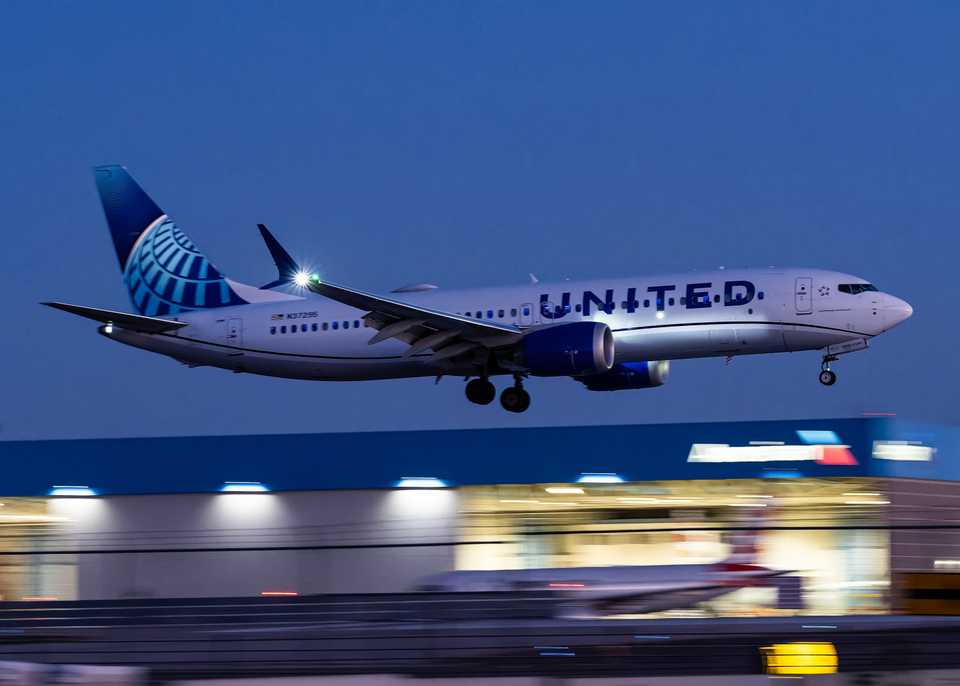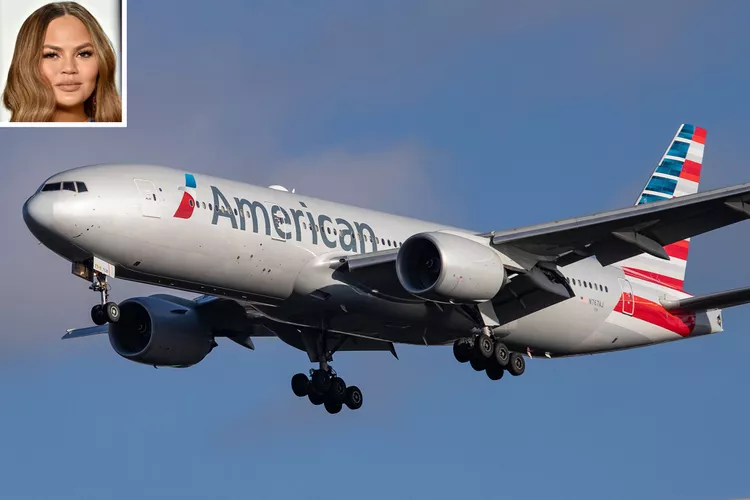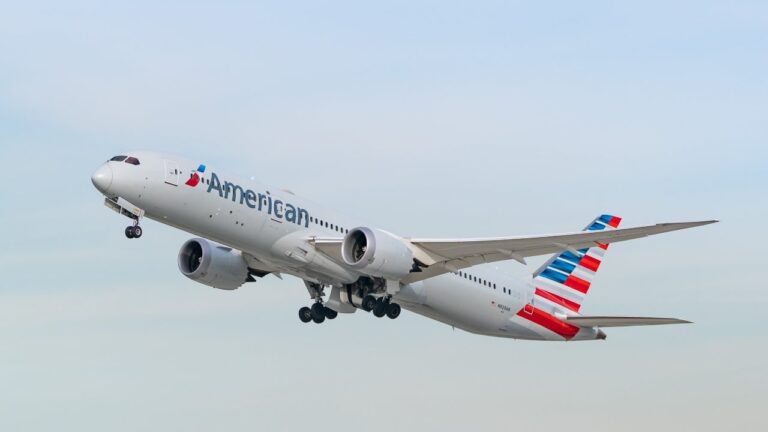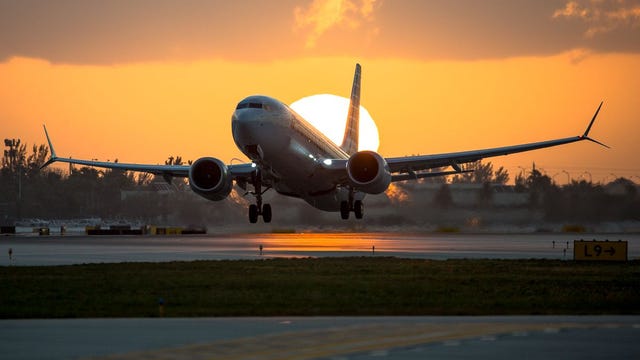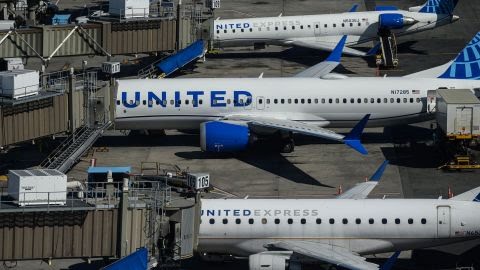United Airlines Says ‘No Excuses’ Approach Behind 2Q $1.7 Billion Earnings
Between April and June, United earned an adjusted pre-tax margin of 12.1%, which it said would “be near the top of the industry.” In Wednesday’s announcement, United pointed to growth in its three diverse revenue streams, premium and economy passengers and road warriors, that will continue to accelerate in 2024.
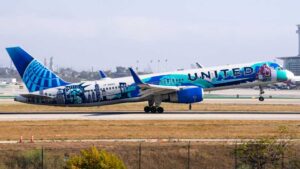
United CEO Scott Kirby said that multiple airlines have begun to cancel loss-making capacity, and he expects leading unit revenue performance among the airline’s largest peers in the second half of the third quarter.
“United has long been preparing for the moment when industry wide domestic capacity would adjust – it’s now clear that inflection point is just 30 days away.”
United has been anticipating these domestic capacity reductions for nearly two years and said that published schedule changes show an approximately 3-point decline in industry capacity growth rate. On its own strategy, the airline reported that in 2Q24, premium revenue grew by 8.5% year-on-year (YoY), Basic Economy by 38%, and its market share among domestic road warriors also increased YoY.
United CEO Scott Kirby said that multiple airlines have begun to cancel loss-making capacity, and he expects leading unit revenue performance among the airline’s largest peers in the second half of the third quarter.
“United has long been preparing for the moment when industry wide domestic capacity would adjust – it’s now clear that inflection point is just 30 days away.”
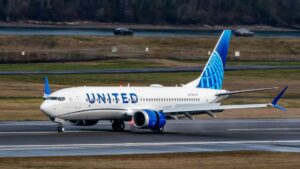
United has been anticipating these domestic capacity reductions for nearly two years and said that published schedule changes show an approximately 3-point decline in industry capacity growth rate. On its own strategy, the airline reported that in 2Q24, premium revenue grew by 8.5% year-on-year (YoY), Basic Economy by 38%, and its market share among domestic road warriors also increased YoY.What were the 2Q highlights?
In 2Q24, United flew 44.4 million passengers, the most for a second quarter in company history, and set a new record for the most carried in a day when 565,000 guests were on United Airlines aircraft. It operated the largest domestic US and Canada 2Q schedule in the airline’s history and an international schedule 35% larger than the next US carrier by available seat miles.
The United app continues to shine, with more than 89% of customers engaging digitally on their day of travel. In 2Q, 47% of passengers were rebooked through United’s automated service or through self-service, an increase of seven percentage points year over year
Another United innovation was a new seat preference feature that automatically re-seats customers when their preferred seat becomes available. More than 30% of customers who have saved their seat preferences have been automatically moved to their favorite spot.
Among the many 2Q highlights, United carried nearly 320 million pounds of cargo, including approximately 33 million pounds of medical shipments and 29,000 pounds of military shipments. More than 110 tons of cargo was flown to support the Gaza humanitarian crisis, Brazil flood relief, Maui recovery and other disaster preparedness, relief and recovery efforts.
Between April and June, United earned an adjusted pre-tax margin of 12.1%, which it said would “be near the top of the industry.” In Wednesday’s announcement, United pointed to growth in its three diverse revenue streams, premium and economy passengers and road warriors, that will continue to accelerate in 2024.

United CEO Scott Kirby said that multiple airlines have begun to cancel loss-making capacity, and he expects leading unit revenue performance among the airline’s largest peers in the second half of the third quarter.
“United has long been preparing for the moment when industry wide domestic capacity would adjust – it’s now clear that inflection point is just 30 days away.”
United has been anticipating these domestic capacity reductions for nearly two years and said that published schedule changes show an approximately 3-point decline in industry capacity growth rate. On its own strategy, the airline reported that in 2Q24, premium revenue grew by 8.5% year-on-year (YoY), Basic Economy by 38%, and its market share among domestic road warriors also increased YoY.
United CEO Scott Kirby said that multiple airlines have begun to cancel loss-making capacity, and he expects leading unit revenue performance among the airline’s largest peers in the second half of the third quarter.
“United has long been preparing for the moment when industry wide domestic capacity would adjust – it’s now clear that inflection point is just 30 days away.”

United has been anticipating these domestic capacity reductions for nearly two years and said that published schedule changes show an approximately 3-point decline in industry capacity growth rate. On its own strategy, the airline reported that in 2Q24, premium revenue grew by 8.5% year-on-year (YoY), Basic Economy by 38%, and its market share among domestic road warriors also increased YoY.What were the 2Q highlights?
In 2Q24, United flew 44.4 million passengers, the most for a second quarter in company history, and set a new record for the most carried in a day when 565,000 guests were on United Airlines aircraft. It operated the largest domestic US and Canada 2Q schedule in the airline’s history and an international schedule 35% larger than the next US carrier by available seat miles.
The United app continues to shine, with more than 89% of customers engaging digitally on their day of travel. In 2Q, 47% of passengers were rebooked through United’s automated service or through self-service, an increase of seven percentage points year over year
Another United innovation was a new seat preference feature that automatically re-seats customers when their preferred seat becomes available. More than 30% of customers who have saved their seat preferences have been automatically moved to their favorite spot.
Among the many 2Q highlights, United carried nearly 320 million pounds of cargo, including approximately 33 million pounds of medical shipments and 29,000 pounds of military shipments. More than 110 tons of cargo was flown to support the Gaza humanitarian crisis, Brazil flood relief, Maui recovery and other disaster preparedness, relief and recovery efforts.
Between April and June, United earned an adjusted pre-tax margin of 12.1%, which it said would “be near the top of the industry.” In Wednesday’s announcement, United pointed to growth in its three diverse revenue streams, premium and economy passengers and road warriors, that will continue to accelerate in 2024.

United CEO Scott Kirby said that multiple airlines have begun to cancel loss-making capacity, and he expects leading unit revenue performance among the airline’s largest peers in the second half of the third quarter.
“United has long been preparing for the moment when industry wide domestic capacity would adjust – it’s now clear that inflection point is just 30 days away.”
United has been anticipating these domestic capacity reductions for nearly two years and said that published schedule changes show an approximately 3-point decline in industry capacity growth rate. On its own strategy, the airline reported that in 2Q24, premium revenue grew by 8.5% year-on-year (YoY), Basic Economy by 38%, and its market share among domestic road warriors also increased YoY.
United CEO Scott Kirby said that multiple airlines have begun to cancel loss-making capacity, and he expects leading unit revenue performance among the airline’s largest peers in the second half of the third quarter.
“United has long been preparing for the moment when industry wide domestic capacity would adjust – it’s now clear that inflection point is just 30 days away.”

United has been anticipating these domestic capacity reductions for nearly two years and said that published schedule changes show an approximately 3-point decline in industry capacity growth rate. On its own strategy, the airline reported that in 2Q24, premium revenue grew by 8.5% year-on-year (YoY), Basic Economy by 38%, and its market share among domestic road warriors also increased YoY.What were the 2Q highlights?
In 2Q24, United flew 44.4 million passengers, the most for a second quarter in company history, and set a new record for the most carried in a day when 565,000 guests were on United Airlines aircraft. It operated the largest domestic US and Canada 2Q schedule in the airline’s history and an international schedule 35% larger than the next US carrier by available seat miles.
The United app continues to shine, with more than 89% of customers engaging digitally on their day of travel. In 2Q, 47% of passengers were rebooked through United’s automated service or through self-service, an increase of seven percentage points year over year
Another United innovation was a new seat preference feature that automatically re-seats customers when their preferred seat becomes available. More than 30% of customers who have saved their seat preferences have been automatically moved to their favorite spot.
Among the many 2Q highlights, United carried nearly 320 million pounds of cargo, including approximately 33 million pounds of medical shipments and 29,000 pounds of military shipments. More than 110 tons of cargo was flown to support the Gaza humanitarian crisis, Brazil flood relief, Maui recovery and other disaster preparedness, relief and recovery efforts.
Between April and June, United earned an adjusted pre-tax margin of 12.1%, which it said would “be near the top of the industry.” In Wednesday’s announcement, United pointed to growth in its three diverse revenue streams, premium and economy passengers and road warriors, that will continue to accelerate in 2024.

United CEO Scott Kirby said that multiple airlines have begun to cancel loss-making capacity, and he expects leading unit revenue performance among the airline’s largest peers in the second half of the third quarter.
“United has long been preparing for the moment when industry wide domestic capacity would adjust – it’s now clear that inflection point is just 30 days away.”
United has been anticipating these domestic capacity reductions for nearly two years and said that published schedule changes show an approximately 3-point decline in industry capacity growth rate. On its own strategy, the airline reported that in 2Q24, premium revenue grew by 8.5% year-on-year (YoY), Basic Economy by 38%, and its market share among domestic road warriors also increased YoY.
United CEO Scott Kirby said that multiple airlines have begun to cancel loss-making capacity, and he expects leading unit revenue performance among the airline’s largest peers in the second half of the third quarter.
“United has long been preparing for the moment when industry wide domestic capacity would adjust – it’s now clear that inflection point is just 30 days away.”

United has been anticipating these domestic capacity reductions for nearly two years and said that published schedule changes show an approximately 3-point decline in industry capacity growth rate. On its own strategy, the airline reported that in 2Q24, premium revenue grew by 8.5% year-on-year (YoY), Basic Economy by 38%, and its market share among domestic road warriors also increased YoY.What were the 2Q highlights?
In 2Q24, United flew 44.4 million passengers, the most for a second quarter in company history, and set a new record for the most carried in a day when 565,000 guests were on United Airlines aircraft. It operated the largest domestic US and Canada 2Q schedule in the airline’s history and an international schedule 35% larger than the next US carrier by available seat miles.
The United app continues to shine, with more than 89% of customers engaging digitally on their day of travel. In 2Q, 47% of passengers were rebooked through United’s automated service or through self-service, an increase of seven percentage points year over year
Another United innovation was a new seat preference feature that automatically re-seats customers when their preferred seat becomes available. More than 30% of customers who have saved their seat preferences have been automatically moved to their favorite spot.
Among the many 2Q highlights, United carried nearly 320 million pounds of cargo, including approximately 33 million pounds of medical shipments and 29,000 pounds of military shipments. More than 110 tons of cargo was flown to support the Gaza humanitarian crisis, Brazil flood relief, Maui recovery and other disaster preparedness, relief and recovery efforts.
Between April and June, United earned an adjusted pre-tax margin of 12.1%, which it said would “be near the top of the industry.” In Wednesday’s announcement, United pointed to growth in its three diverse revenue streams, premium and economy passengers and road warriors, that will continue to accelerate in 2024.

United CEO Scott Kirby said that multiple airlines have begun to cancel loss-making capacity, and he expects leading unit revenue performance among the airline’s largest peers in the second half of the third quarter.
“United has long been preparing for the moment when industry wide domestic capacity would adjust – it’s now clear that inflection point is just 30 days away.”
United has been anticipating these domestic capacity reductions for nearly two years and said that published schedule changes show an approximately 3-point decline in industry capacity growth rate. On its own strategy, the airline reported that in 2Q24, premium revenue grew by 8.5% year-on-year (YoY), Basic Economy by 38%, and its market share among domestic road warriors also increased YoY.
United CEO Scott Kirby said that multiple airlines have begun to cancel loss-making capacity, and he expects leading unit revenue performance among the airline’s largest peers in the second half of the third quarter.
“United has long been preparing for the moment when industry wide domestic capacity would adjust – it’s now clear that inflection point is just 30 days away.”

United has been anticipating these domestic capacity reductions for nearly two years and said that published schedule changes show an approximately 3-point decline in industry capacity growth rate. On its own strategy, the airline reported that in 2Q24, premium revenue grew by 8.5% year-on-year (YoY), Basic Economy by 38%, and its market share among domestic road warriors also increased YoY.What were the 2Q highlights?
In 2Q24, United flew 44.4 million passengers, the most for a second quarter in company history, and set a new record for the most carried in a day when 565,000 guests were on United Airlines aircraft. It operated the largest domestic US and Canada 2Q schedule in the airline’s history and an international schedule 35% larger than the next US carrier by available seat miles.
The United app continues to shine, with more than 89% of customers engaging digitally on their day of travel. In 2Q, 47% of passengers were rebooked through United’s automated service or through self-service, an increase of seven percentage points year over year
Another United innovation was a new seat preference feature that automatically re-seats customers when their preferred seat becomes available. More than 30% of customers who have saved their seat preferences have been automatically moved to their favorite spot.
Among the many 2Q highlights, United carried nearly 320 million pounds of cargo, including approximately 33 million pounds of medical shipments and 29,000 pounds of military shipments. More than 110 tons of cargo was flown to support the Gaza humanitarian crisis, Brazil flood relief, Maui recovery and other disaster preparedness, relief and recovery efforts.
Between April and June, United earned an adjusted pre-tax margin of 12.1%, which it said would “be near the top of the industry.” In Wednesday’s announcement, United pointed to growth in its three diverse revenue streams, premium and economy passengers and road warriors, that will continue to accelerate in 2024.

United CEO Scott Kirby said that multiple airlines have begun to cancel loss-making capacity, and he expects leading unit revenue performance among the airline’s largest peers in the second half of the third quarter.
“United has long been preparing for the moment when industry wide domestic capacity would adjust – it’s now clear that inflection point is just 30 days away.”
United has been anticipating these domestic capacity reductions for nearly two years and said that published schedule changes show an approximately 3-point decline in industry capacity growth rate. On its own strategy, the airline reported that in 2Q24, premium revenue grew by 8.5% year-on-year (YoY), Basic Economy by 38%, and its market share among domestic road warriors also increased YoY.
United CEO Scott Kirby said that multiple airlines have begun to cancel loss-making capacity, and he expects leading unit revenue performance among the airline’s largest peers in the second half of the third quarter.
“United has long been preparing for the moment when industry wide domestic capacity would adjust – it’s now clear that inflection point is just 30 days away.”

United has been anticipating these domestic capacity reductions for nearly two years and said that published schedule changes show an approximately 3-point decline in industry capacity growth rate. On its own strategy, the airline reported that in 2Q24, premium revenue grew by 8.5% year-on-year (YoY), Basic Economy by 38%, and its market share among domestic road warriors also increased YoY.What were the 2Q highlights?
In 2Q24, United flew 44.4 million passengers, the most for a second quarter in company history, and set a new record for the most carried in a day when 565,000 guests were on United Airlines aircraft. It operated the largest domestic US and Canada 2Q schedule in the airline’s history and an international schedule 35% larger than the next US carrier by available seat miles.
The United app continues to shine, with more than 89% of customers engaging digitally on their day of travel. In 2Q, 47% of passengers were rebooked through United’s automated service or through self-service, an increase of seven percentage points year over year
Another United innovation was a new seat preference feature that automatically re-seats customers when their preferred seat becomes available. More than 30% of customers who have saved their seat preferences have been automatically moved to their favorite spot.
Among the many 2Q highlights, United carried nearly 320 million pounds of cargo, including approximately 33 million pounds of medical shipments and 29,000 pounds of military shipments. More than 110 tons of cargo was flown to support the Gaza humanitarian crisis, Brazil flood relief, Maui recovery and other disaster preparedness, relief and recovery efforts.
